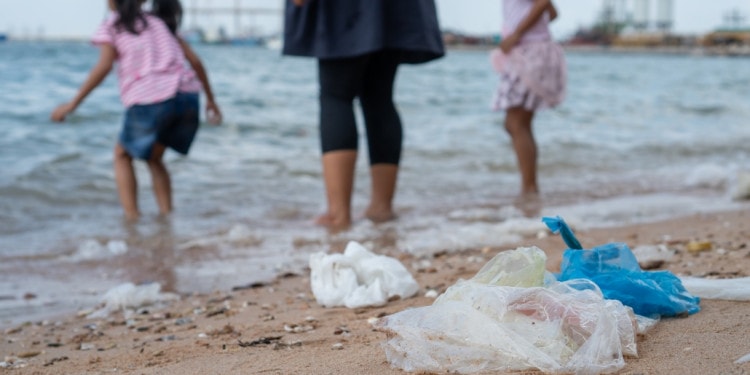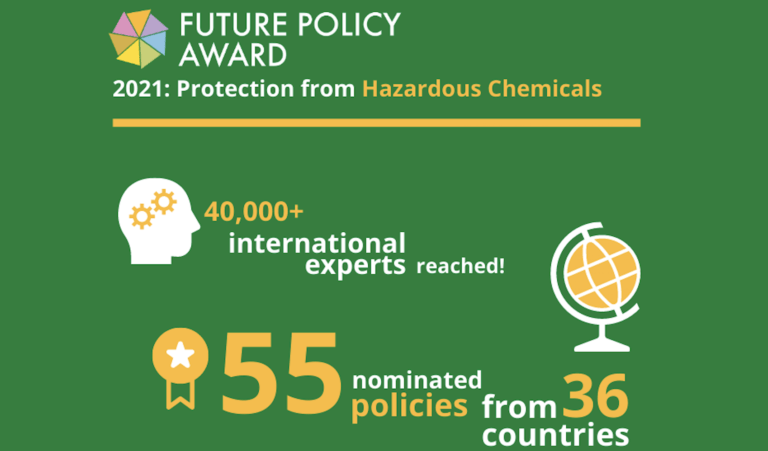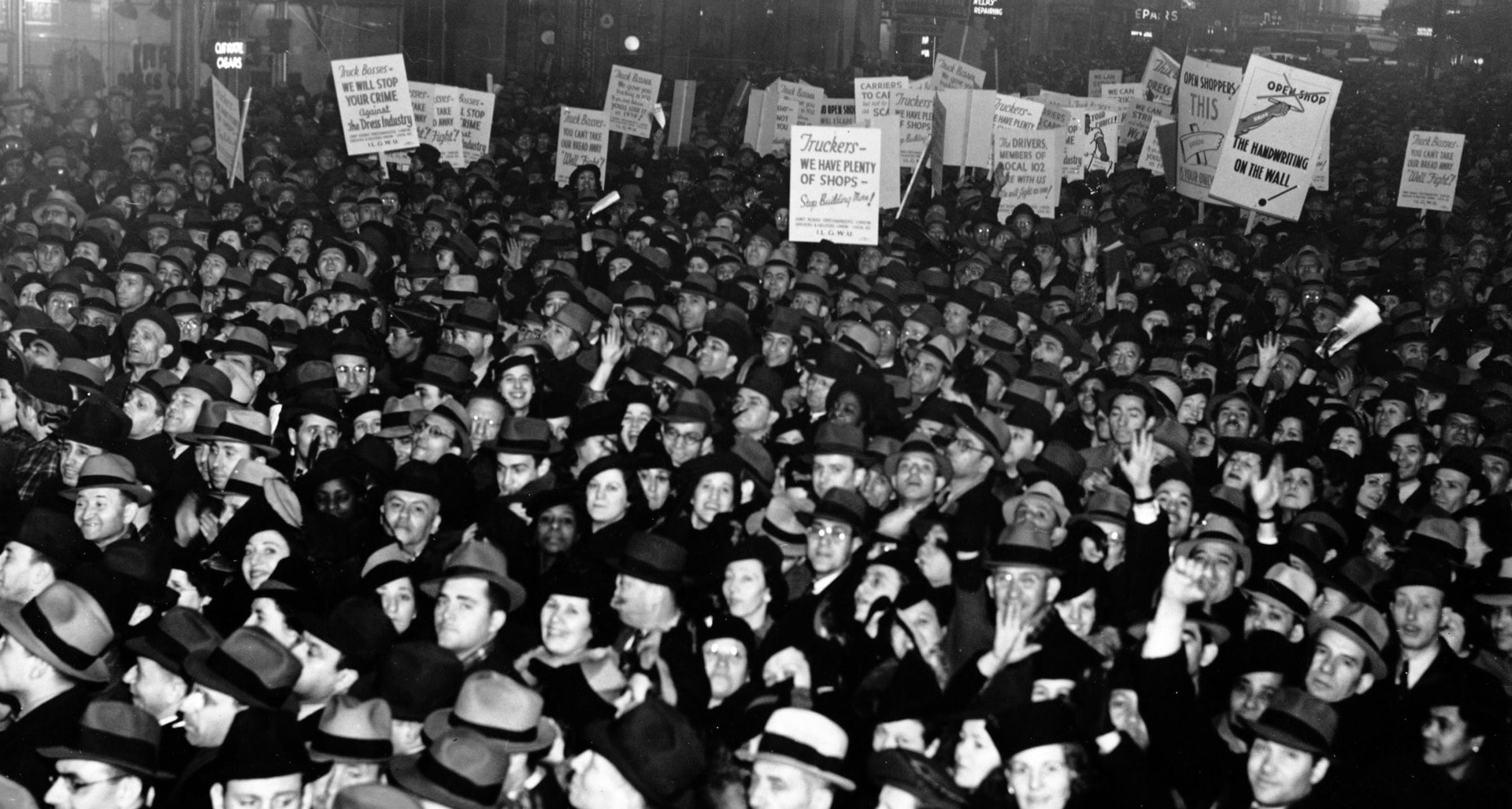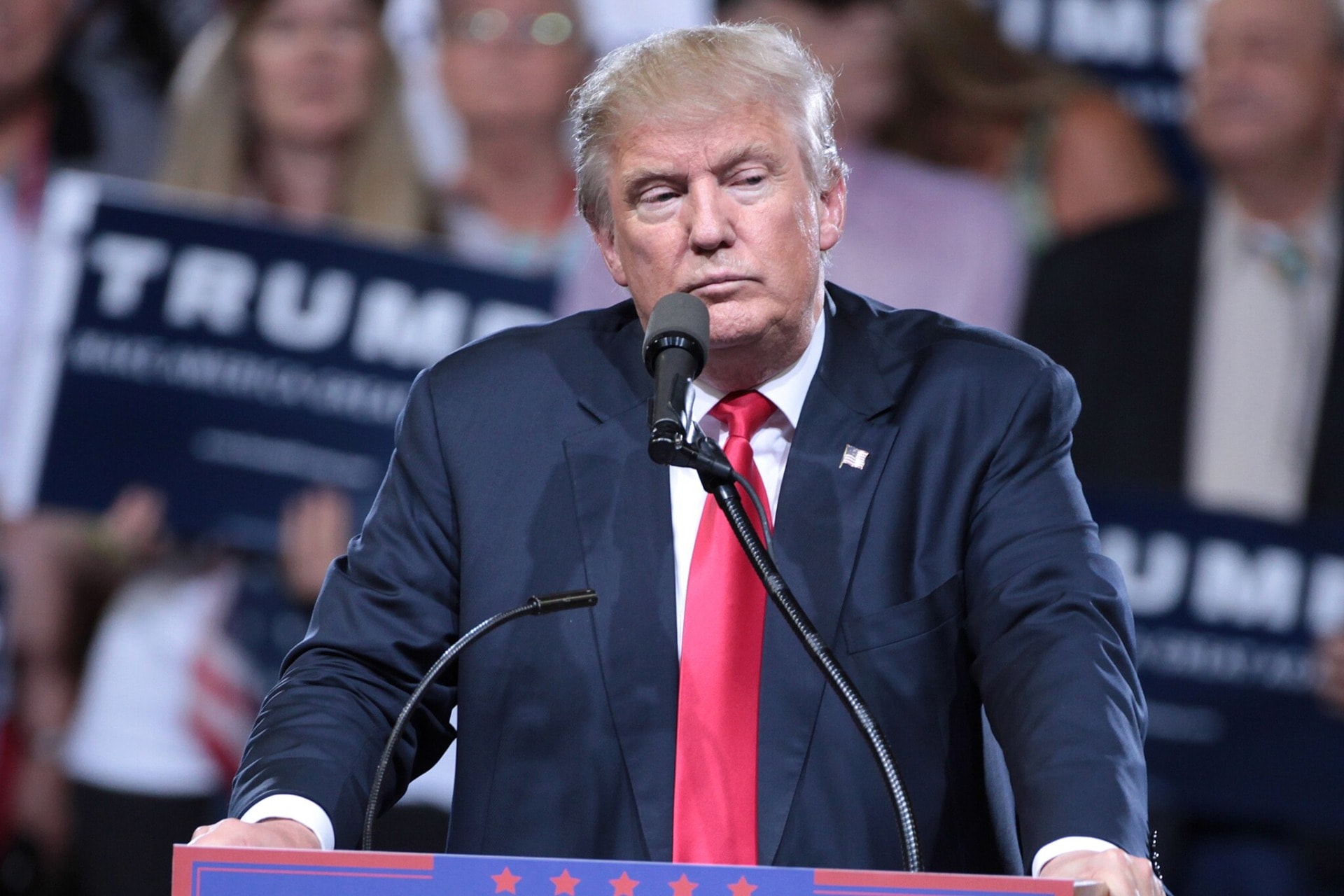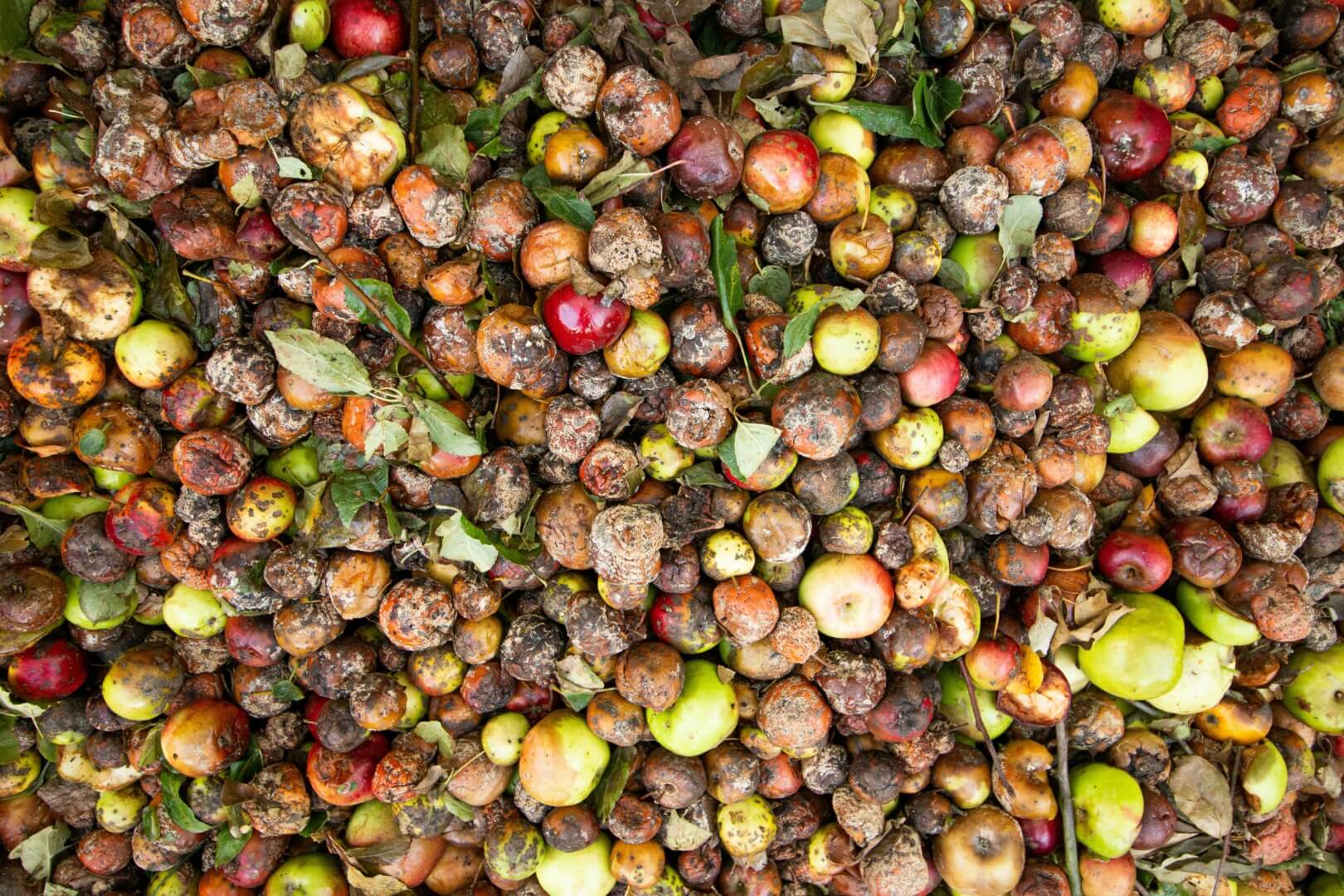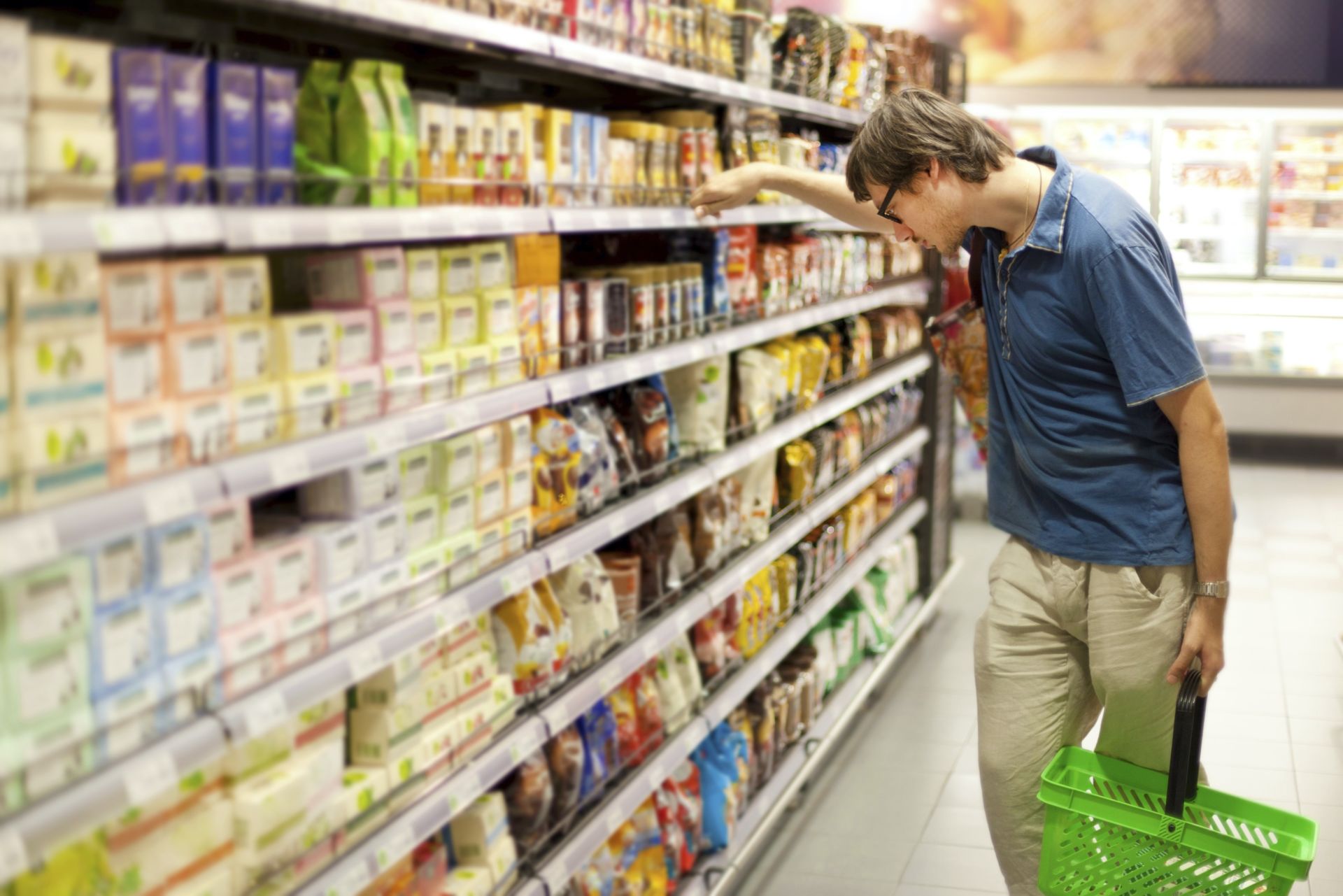Often described as the “Oscar on Best Policies,” the annual Future Policy Award showcases legislation and policies that create better living conditions for current and future generations. This unconventional award, organized by the World Future Council, aims to “raise global awareness for these exemplary laws and policies, and speed up policy action towards a healthy planet and just, sustainable and peaceful societies.”
With “Protection from Hazardous Chemicals” as this year’s topic — selected based on the urgency of policy progress — the 2021 award will celebrate the world’s best laws, policies, and legal frameworks that “regulate or ban the use of hazardous chemicals that threaten the environment and human health.”
As important as the 40,000-60,000 chemicals in commerce today are in our daily lives, they can and do harm our health and environment. They enter our food chains, soil, air, and water, and, if hazardous, may cause irreversible damage to human health as well as to the health of animals, fauna, flora, marine life, and the planet.
In 2016, the WHO estimated the number of lives lost as a direct or indirect consequence of hazardous chemicals at over 1.6 million — unfortunately, with an upward trend since 2012. Another 200 million people might be affected by waste sites, claims the Global Alliance on Health and Pollution’s (GAHP) recent report, while the EU estimates its yearly costs caused by certain exposure to chemicals at over 170 billion USD.
…this is a public health crisis that is present in all countries, from the wealthiest to the least industrialized.
The UN Special Rapporteur on human rights and hazardous substances and wastes Baskut Tuncak has called this a “‘silent pandemic’ of disability and disease associated with childhood exposure to toxics and pollution.” To build on this from the GAHP report, such toxic substances “may interfere with the normal expression of genes, brain development, the function of hormones and other processes necessary for children to grow into healthy adults.”
One of the causes for this “silent pandemic,” toxic pollution is now estimated to be “the largest source of premature death in the developing world, killing more people than HIV-AIDS, tuberculosis and malaria combined,” underlined the Special Rapporteur as part of the opening remarks at the 73rd session of the U.N. General Assembly in 2018. “However, this is a public health crisis that is present in all countries,” Tuncak went on, “from the wealthiest to the least industrialized.”
And indeed, even in countries like the U.S., babies today are born pre-polluted to a disturbing extent, reveals a U.S. National Cancer Institute report. Thus this global problem that affects people everywhere has the potential to impact both “present and future generations,” as President of the German Environment Agency Prof. Dr. Dirk Messner put it.
At present, particularly vulnerable to the adverse effects of hazardous chemicals are pregnant women, the elderly, the poor, children, adolescents and women working in the informal sector, and workers — one of whom dies every 30 seconds as a result of exposure to hazardous chemicals in the workplace.
Related Articles: The Harmful Chemicals in Fast Fashion | Women at the Forefront of Global Toxic Chemicals Threat
Yet, despite all this, the current chemical production capacities are projected to double by 2030. And so is the consumption, particularly in emerging economies. “This will increase global chemical releases, exposures, concentrations and adverse health and environmental impacts,” writes the World Future Council.
By selecting “Protection from Hazardous Chemicals” as the topic for the 2021 Award, the organization hopes to help underline the undeniable urgency to act by promoting as well as rewarding solutions that should ultimately “strengthen the sound management of chemicals and waste – through inclusive, effective, inspiring and innovative laws and policies.”
Their call for nominations, which sought “comprehensive policies, laws and legal frameworks that protect human health, specifically the health of children, and the environment,” reached more than 40,000 international experts and resulted in the nominations of 55 policies from 36 countries across the categories:
- Protection of human health and the environment from chemicals across the lifecycle
- Highly hazardous pesticides
- Lead in paint
- Policies that tackle hazardous (child) labour dealing with chemicals
- Environmentally Persistent Pharmaceutical Pollutants.
Despite the impressive number of nominations, only a few of these policies are truly effective, well implemented and inspiring. The immense task of evaluating them, which the World Future Council team is currently undertaking, will ultimately narrow down the selection of nominations for this highest international recognition to the very best laws and policies.
To conclude by quoting Svenja Schulze, German Federal Minister of the Environment, referring to the award:
Strengthening the sound management of chemicals and waste is urgently required… The Future Policy Award will honour best practice examples in this regard.
— —
The winners of this year’s award will be announced in July 2021 at the International Conference on Chemicals Management (ICCM5) in Bonn, Germany. It will be awarded in partnership with:
- The United Nations Environment Programme (UNEP)
- The Strategic Approach to International Chemicals Management (SAICM)
- The International Labour Organisation (ILO)
- The Organisation for Economic Co-operation and Development (OECD)
- The German Federal Minister for the Environment
- Nature Conservation
- Nuclear Safety (BMU)
- The German Environment Agency (UBA)
- The Michael Otto Foundation and the Jua Foundation
Learn more about the 2021 Future Policy Award by clicking here.
Editor’s Note: The opinions expressed here by Impakter.com columnists are their own, not those of Impakter.com. — In the Featured Photo: Plastic pollution on a beach with a woman and three girls standing by, Chon Buri, Thailand. Featured Photo Credit: Sasiistock/Getty Images/iStockphoto.


